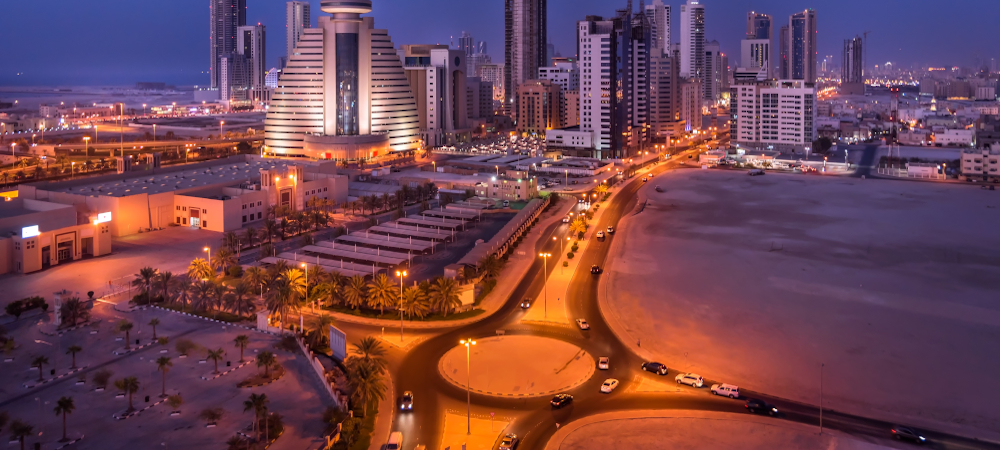The Language Barrier in Bahrain
Although English is widely spoken in Bahrain, Arabic is the primary language there. Around half of the population are non-nationals, which is the reason why a significant proportion of governmental communications are translated into English as well. Expats moving to Bahrain are advised to learn at least some useful phrases in Arabic in order to show respect as well as help them in day to day situations.
Weather & Climate
The coolest time of year in Bahrain is around January and February, when (on average) lows are around 15°C and highs are at 21°C. The hottest months of the year are July and August, when lows are 31°C and highs are 39°C .
Around 92% of Bahrain is desert, and the country sees fairly regular periods of drought and dust storms. These are the main problems with regards to natural weather hazards.
British Embassy in Bahrain
| Address: | 21 Government Avenue Manama 306 PO Box 114 Manama Bahrain |
| Phone: | (+973) 1757 4100 |
| Fax: | (+973) 1757 4101 |
| Website: | https://www.gov.uk/world/organisations/british-embassy-manama |
| Office hours: | Local Time Sun-Thurs: 7.30am – 2.30pm |
Emergency Services Contact Information in Bahrain
| Emergency Service | Contact Number |
| Police Service | 999 |
| Fire Service | 999 |
| Ambulance Service | 999 |
Health in Bahrain
Before travelling to Bahrain, visitors are advised to seek medical advice from their GP in order to find out which – if any – immunisations are recommended. In addition to ensuring MMR and Tetanus vaccinations are up to date, you might be recommended Hepatitis A and B, and rabies.
Any travellers over the age of 9 months are required to present a Yellow fever certificate upon entry to Bahrain, if they have arrived from – or travelled via – a country with a Yellow fever risk.
Public health services are free for all Bahraini citizens, but non-residents are charged a fee. It’s advisable to take out private health insurance to cover this.
Driving while Living in Bahrain
Since road traffic laws were re-evaluated in 2015, driving in Bahrain has become a calmer and more orderly task. Road signs are printed in Arabic and English, making driving that bit simpler for English-speaking expats, however drivers must stick to the right in Bahrain.
Other things to consider include that traffic lights have sensors on them as a deterrent for crossing the white line, flashing high beams usually means a driver wants to pass, and parking on the road is not allowed unless there are clear marked bays.
Getting your Driving Licence
Expats are permitted to drive in Bahrain as long as they are over 18 years of age, and show evidence of their own, full, national driver’s licence, and an international driving permit. Drivers under the age of 21 cannot rent a vehicle in Bahrain.
After living in Bahrain for more than three months, a UK driver’s licence is not enough – expats must obtain a local licence. To apply for a Bahraini driver’s licence applicants must visit the Traffic Department and supply the following:
- Completed application form
- Appropriate fee
- Original plus 1x passport copy
- Residential visa
- Original plus 1x CPR copy (residency card)
- Your original driver’s licence
- Two passport photos
In addition to providing these, applicants must also pass a medical and eye exam, take theory classes, and pass the practical test.
Legal Requirements
Driving while under the influence of drugs or alcohol is strictly prohibited – there is no threshold; if your blood alcohol level is anything over 0.0% you will be punished. It’s also recommended that drivers take copies of any medication prescriptions they have while driving, because of Bahrain’s strict drug laws. Other rules include that children and babies cannot ride in the front of the car, using a handheld mobile phone is prohibited while driving, and eating, drinking, and smoking are also not allowed while driving.


